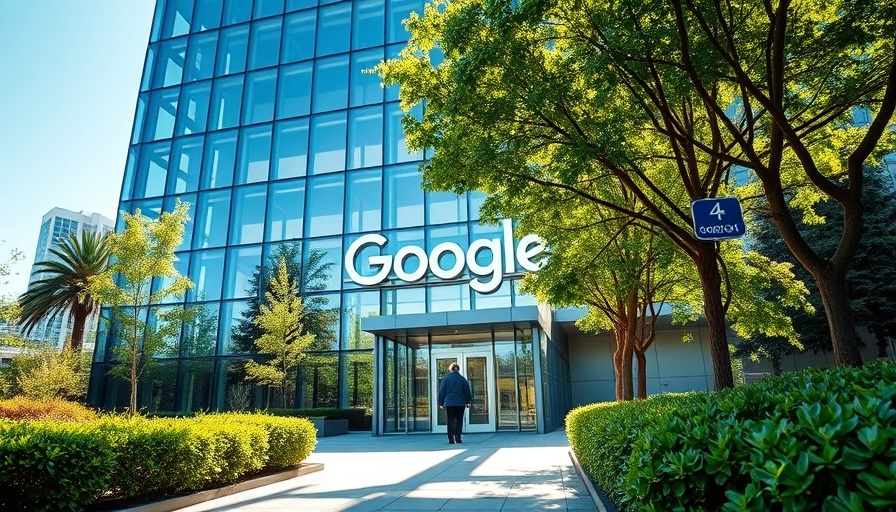
Google's Mounting Monopoly Challenges: A Game Changer for Ad Tech
The landscape of online advertising has been shaken yet again as a federal judge declared Google a monopolist in several parts of its advertising technology business. This ruling underscores the ongoing scrutiny of big tech companies and brings to light the implications for competition and consumers alike.
Examining Market Dynamics: What Does This Ruling Mean?
The latest ruling by Judge Leonie Brinkema from the US District Court for the Eastern District of Virginia comes just months after a similar decision regarding Google’s dominance in the search engine market. The implications for Google's ad tech business are significant—potentially restricting its revenue streams, which amounted to nearly $30.4 billion last year from ad placements alone.
This decision may not only have ramifications for vendors in the advertising technology space but also for consumers, who might have a browsing experience characterized by fewer ads and paywalls. The court noted that Google's practices have substantially harmed both competitors and publisher customers.
Understanding Antitrust in the Age of Big Tech
At the heart of Brinkema's ruling is a violation of Section 2 of the Sherman Act, which is a crucial part of US antitrust legislation. The finding highlighted that Google actively engaged in exclusionary conduct that reinforced its monopoly power. Critics have long argued that Google’s dominance enables it to prioritize its internal systems while stifling competition, a sentiment echoed in the findings submitted by the plaintiffs.
Did the Court Get It Right? Perspectives on Google's Defense
While the ruling determined that Google monopolized the publisher tools market, it dismissed allegations of monopolization regarding ad-buying tools. Google's defense hinged on the argument that the government's narrow market definition was flawed, indicating that not all components of its advertising business pose a threat to competition.
This nuanced ruling presents a split verdict for Google, as it prepares to appeal the decisions impacting its publisher tools while maintaining that its advertising tools do not harm competition. This presents a rare case where a tech juggernaut has the potential to adjust its strategies in the face of legal challenges.
Future Implications: Navigating the Ad Tech Landscape
For executives and decision-makers, this ruling could represent a pivotal moment in the realm of advertising and technology. As the industry considers the long-term ramifications of antitrust scrutiny, it is vital for leaders to reassess their strategies in collaboration with ad tech partners and stakeholders. Future challenges may emerge regarding regulatory compliance, marketing tactics, and competitive positioning.
Ultimately, ongoing developments in this case will not only shape Google's operational strategies but may also influence how other technology companies design their advertising practices to avoid similar legal entanglements.
Conclusion: Preparing for Change
The implications of Google's ruling extend beyond immediate actions by the company. As the digital advertising ecosystem evolves, stakeholders should anticipate changes. It’s crucial for businesses to engage with these emerging dynamics to effectively navigate their own advertising strategies and foster competitive environments.
 Add Row
Add Row  Add
Add 




Write A Comment